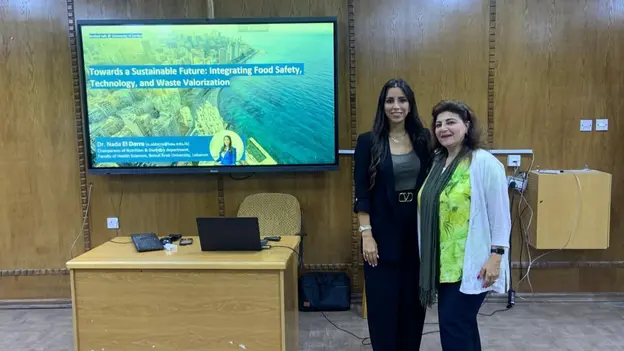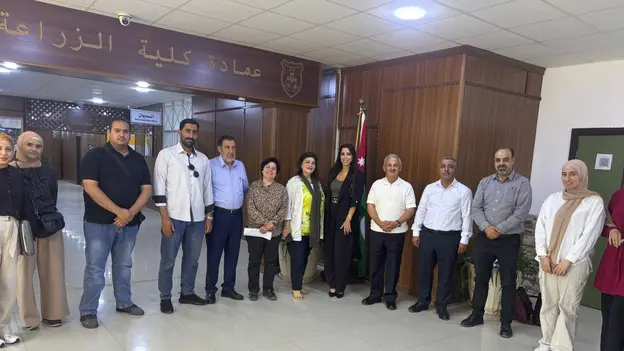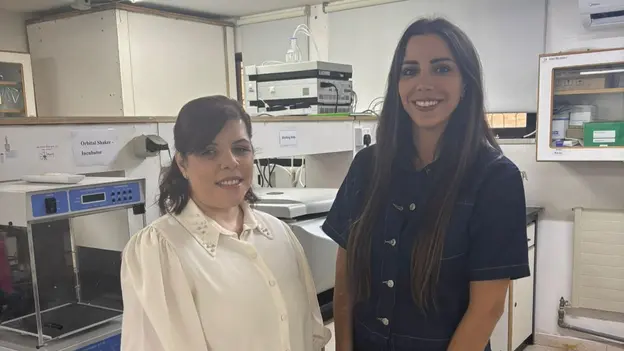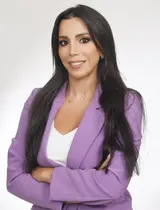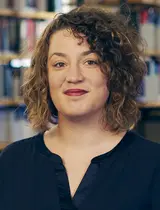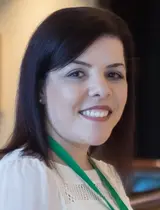Tandem Project
From Waste to Worth: Innovative Valorization of Food By-Products
Food waste is often viewed as a liability – an inevitable outcome of modern consumption. Yet, AGYA members Prof. Dr. Nada El Darra and Prof. Dr. Hanna Pfeifer prove that waste can, in fact, become a valuable resource. Their interdisciplinary project explores how discarded industrial and agricultural waste can be transformed into functional, sustainable products.
Bridging the natural sciences and political science, this project combines approaches from green chemistry, biotechnology, and social science inquiry to reimagine food waste as a source of bioactive compounds, water purification materials, and public engagement tools.
Green Extraction and Encapsulation: From Peels to Potential
At her home institution Beirut Arab University, Lebanon, Nada El Darra is using green extraction methods, such as infrared-assisted and ultrasound-assisted extraction, to isolate bioactive molecules from selected food by-products. These extracts are further encapsulated and studied for antioxidant, antimicrobial, and anticancer properties by AGYA alumna and cooperation partner Prof. Dr. Suhair Sunoqrot and her team at Al-Zaytoonah University, Jordan. The goal is to preserve and enhance the health-promoting effects of these compounds through advanced encapsulation technologies, ultimately paving the way for their application in food, pharmaceutical, and cosmetic industries.
Food Waste for Clean Water
Beyond bioactivity, the project also investigates a second life for food waste: wastewater treatment. For this purpose, adsorption experiments explore how discarded by-products like spent tea or vegetable peels can serve as low-cost, eco-friendly filters for removing dyes and heavy metals from contaminated water. These experiments evaluate the adsorption capacities, kinetics, and reusability of the biosorbents, aiming to develop scalable purification systems for real-world applications.
The Politics of Waste: A Critical Social Lens
Hanna Pfeifer investigates the social and political dimensions of waste and ‘unwasting’ practices in both Germany and Lebanon. Through interviews, media analysis, and literature studies, she reconstructs how waste is perceived, politicized, and resisted – whether through grassroots movements like Lebanon’s ‘You Stink’ protests or Germany’s dumpster diving subcultures. Her work contributes to a critical essay that explores how waste can become a site of contestation, creativity, and sustainability.
What society considers waste is not just a scientific question – it is deeply political.
Hanna Pfeifer, AGYA member
Learning Through Play: A Trilingual Educational Card Game
One of the project’s most innovative outcomes is a trilingual educational card game, which will be made available in Arabic, English, and German. Blending scientific knowledge and sociopolitical narratives in a playful, accessible format, the game aims at raising awareness about food waste valorization among children, youth, and adults.
Towards a Circular Future
As part of AGYA’s broader efforts on sustainability and innovation, including the 2025 Working Group Project ‘Turning Waste into Wealth: The AGYA Playbook on Circularity’ by the Working Group Innovation, this tandem project offers practical solutions, educational tools, and policy-relevant insights.
By transforming what we throw away into something of worth, the project makes a powerful case for rethinking the value of waste – and reimagining the systems that create it.
- Disciplines Involved
- Food Safety & Technology, Political Science, Environmental Science, Agricultural Science
- Cooperation Partner
- Al-Zaytoonah University of Jordan, Jordan
- Project Title
- Valorization of Food Waste: Encapsulation, Adsorption Applications, and Assessment of Biological Activities
- Year
- 2025
- Funding Scheme
- Tandem Project
- Countries Involved
- Germany, Lebanon, Jordan
